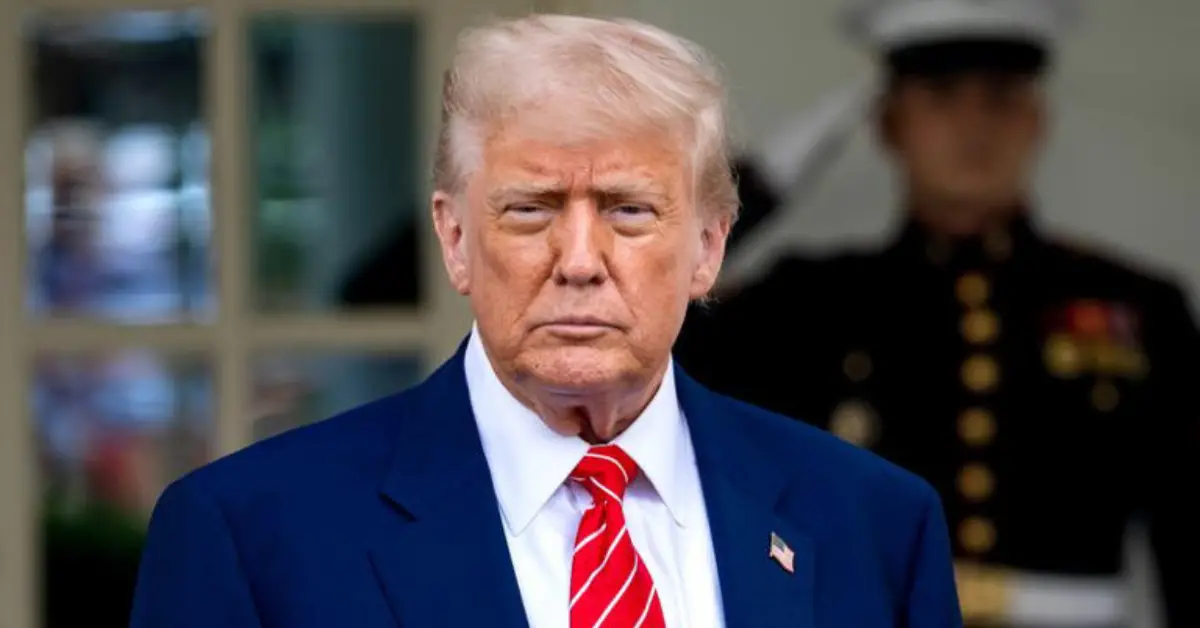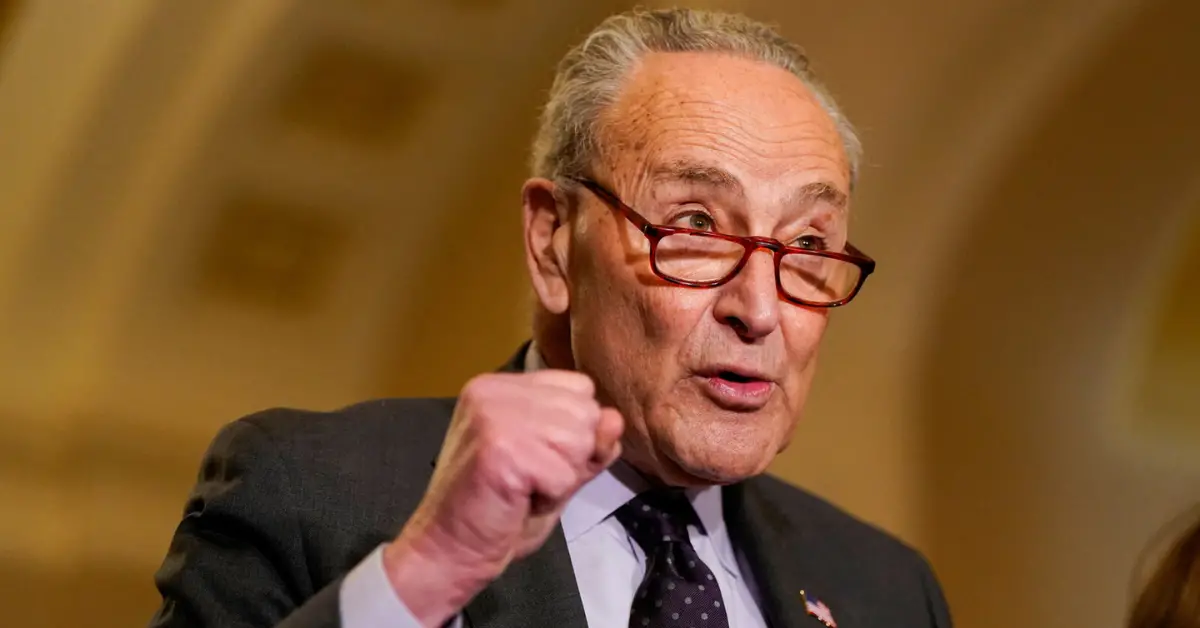In a dramatic turn of events, former President Donald Trump has been forced to reverse his hardline stance on imposing a 145% tariff on Chinese goods. The tariff, which had been a key element of his administration’s trade war with China, was set to disrupt the global supply chain and lead to a significant shortage of products on American shelves.
Experts and business owners had warned that the consequences of such a drastic measure would have been felt by everyday Americans, with empty store shelves becoming a likely outcome in just a few weeks.
This article takes a look at the key reasons behind Trump’s climb-down, the potential consequences of the proposed tariffs, and the broader implications for trade relations between the US and China.
The 145% Tariff: A Dangerous Gamble
When Trump first announced the idea of imposing a 145% tariff on Chinese imports, it was presented as a tough stance against China’s alleged unfair trade practices. The tariff was intended to target a wide range of goods, from electronics and machinery to everyday household products. At first, it seemed like a victory for Trump’s “America First” policy, promising to bring manufacturing jobs back to the US and reduce dependence on foreign-made goods.
However, many trade experts and economists quickly warned of the potential damage. “This tariff would result in higher prices for American consumers, create shortages of key products, and disrupt businesses that rely on Chinese imports for raw materials and goods,” said one economist, who preferred to remain anonymous.
The alarm bells started ringing when it became clear that such tariffs could impact everything from smartphones to clothing. Major retailers, including Walmart, Target, and Costco, expressed concerns that the additional costs would be passed down to consumers, making everyday products more expensive.
Trump’s Warning: Empty Shelves Ahead
One of the most alarming warnings came directly from the former president himself. He stated that, without a drastic change in the tariff policy, American store shelves would be empty in a matter of weeks. “If we don’t do something, we will be out of products,” Trump said in a public speech. His statement reflected the stark reality that a trade war could have far-reaching consequences, especially in an era of global supply chains.
Many Americans, already struggling with the economic fallout from the COVID-19 pandemic, were not prepared for another shock to the system. With unemployment rates still high, and inflation putting pressure on household budgets, the prospect of higher prices and empty store shelves was a serious concern.
The Climb-Down: A Humiliating Defeat for Trump
Amid growing pressure from business leaders, economists, and politicians, Trump eventually backpedaled on the 145% tariff proposal. The climb-down came after intense negotiations and a realization that the economic consequences would far outweigh any potential political gains.

Trump’s decision to reverse course was seen as a humiliating defeat for his administration’s aggressive trade policy. Critics, including many in the Republican Party, argued that the tariff would have caused unnecessary harm to American businesses and consumers, and that it would have been better to focus on addressing specific trade imbalances with China rather than imposing blanket tariffs on a wide range of goods.
The Impact on Businesses and Consumers
The consequences of the proposed 145% tariff would have been severe for both businesses and consumers. For businesses, the increased costs of imports would have meant higher production costs, leading to increased prices for consumers.
Major industries that rely on Chinese goods, such as electronics, textiles, and automotive manufacturing, would have been hit hard. Some companies even warned that they would be forced to move their operations overseas in order to avoid the impact of the tariffs.
For consumers, the effects would have been felt in the form of higher prices for everyday goods. From smartphones to clothing, to basic household products like detergents and toothpaste, the cost of living would have risen significantly. Economists predicted that inflation could have spiked, further straining household budgets.
A New Era in US-China Trade Relations?
While Trump’s reversal on the 145% tariff is seen as a step back, the broader issue of US-China trade relations remains unresolved. The two countries have been locked in a trade war for several years, with both sides imposing tariffs on each other’s goods. However, the political pressure is mounting on both governments to find a more sustainable and cooperative way forward.
In recent months, there have been signs that both the US and China are willing to explore new avenues for cooperation, especially as both countries continue to recover from the economic impacts of the COVID-19 pandemic. However, it remains to be seen whether both sides can reach a fair agreement that benefits both nations without causing further disruption to global trade.
The Role of Congress and Business Leaders
One of the major factors in Trump’s decision to reverse the tariff was the mounting pressure from business leaders and members of Congress. Several high-profile American CEOs, including those from major technology firms like Apple and Tesla, voiced concerns about the potential economic consequences of the tariffs. Lawmakers from both sides of the aisle also warned that such drastic measures would hurt the American economy and damage relationships with important trade partners.
“Imposing such extreme tariffs would have undermined years of hard work in fostering international trade relationships,” said a senior Senate Democrat. “It was clear that the risks far outweighed the potential benefits.”
Looking Ahead: What’s Next for US Trade Policy?
Looking forward, it seems likely that the US will continue to focus on addressing trade imbalances with China, but in a more measured and strategic manner. Rather than imposing blanket tariffs, experts suggest that the US should focus on targeted measures aimed at specific industries or sectors where China’s trade practices have been deemed unfair.
Experts also recommend that the US work more closely with international allies, such as the European Union and Japan, to address global trade issues and ensure that China is held accountable for its practices.
Conclusion
Trump’s climb-down from the 145% Chinese tariff marks a major shift in US trade policy, signaling that even the most hardline measures can have significant consequences. While the reversal is seen as a victory for American businesses and consumers, it highlights the ongoing challenges in US-China trade relations. Moving forward, it’s crucial that the US continues to adopt a balanced and strategic approach to international trade, one that promotes growth and stability without jeopardizing the livelihoods of its citizens.




